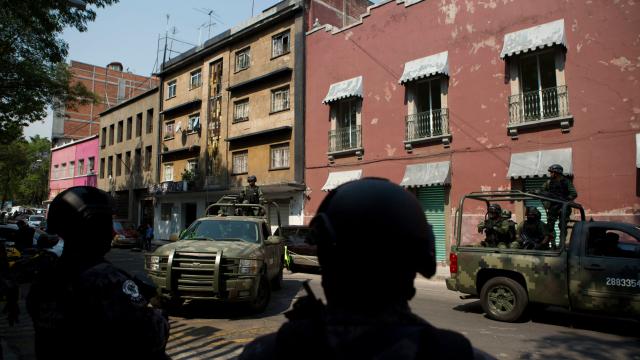The FBI tried to get the CEO of encrypted phone company Phantom Secure, Vincent Ramos, to install a backdoor in his service so that the agency could spy on Sinaloa Cartel members, Motherboard reported on Thursday.
The FBI, along with Canadian and Australian police, busted Phantom Secure last year, with prosecutors indicting Ramos in the Southern District of California on charges including racketeering conspiracy to conduct enterprise affairs, conspiracy to distribute narcotics, and aiding and abetting.
Notably, authorities accused Ramos of deliberately selling secure mobile devices — which had cameras, microphones and most connectivity functions nuked and a version of Pretty Good Privacy installed to route messages overseas, as well as a GPS tracker for cartel bosses to monitor their underlings — to members of the Sinaloa syndicate, making him an associate of their sprawling drug business.
Ramos pleaded guilty in October 2018 to running a criminal enterprise that facilitated drug trafficking, according to Motherboard, with a U.S. Attorney’s Office press release stating he also agreed to forfeit $118 million in cash and tens of millions of dollars in other assets “ranging from bank accounts worldwide, to houses, to a Lamborghini, to cryptocurrency accounts, to gold coins.”
The prosecution argued that unlike traditional tech companies such as Apple and Google, Ramos’ encryption was not incidental and intentionally designed to enable organised crime. To that end, they produced evidence showing Phantom Secure employees providing advice and technical support to undercover agents openly claiming to have committed crimes.
However, this week a source who know Ramos personally told Motherboard that the FBI offered him a deal: “the opportunity to do significantly less time if he identified users or built in/gave backdoor access,” meaning a hidden way for authorities to spy on cartel members using the devices. This offer was confirmed by at least one of the site’s other sources. When Ramos said he lacked the technical expertise to actually install such a backdoor, the FBI told him to enlist another Phantom Secure worker to do so.
He refused, Motherboard wrote, though the FBI later attempted to scrape email addresses from Phantom Secure when it took down the whole network by asking its users to submit email addresses for fake support purposes:
A third source told Motherboard “He never gave law enforcement a backdoor into Phantom Secure. He did not do that.” When pressed on whether the FBI still asked for access, the source, who worked directly on the case, said, “Basically that’s all I want to say. He did not give law enforcement a backdoor into Phantom Secure.”
… The FBI still gained valuable information on the Phantom network. After the FBI shut down the network, the agency briefly ran a portal that allowed customers to ‘check’ whether their email address was included in the list of impacted customers. It is unclear what the FBI did with any email addresses that were entered into this portal.
Ramos “respected the privacy of clients whoever it was,” the source who knew him personally told Motherboard.
Federal law enforcement has been waging an existential battle against encryption tech for years, claiming that it interferes with criminal investigations. The FBI very publicly demanded that Apple build a backdoor into iPhones to assist it in terrorism investigations in 2015 (it was eventually forced to turn to private hackers), while a joint federal-state task force tried to coerce Facebook into doing the same for its Messenger platform during an investigation into transnational Salvadoran gang MS-13.
The FBI also reportedly leaned on Microsoft to build a backdoor into its Bitlocker encryption software.
In response, tech companies have generally appealed to basic security principles, namely that building any backdoor into an encrypted system comes with the significant risk of compromising the data of every other user if malicious third parties learn of the specific method involved. As the Wall Street Journal noted earlier this year, they’ve been facing additional international pressure after the governments of the UK and Australia passed laws “that make it easier for law enforcement to compel tech companies to turn over data.”
U.S. authorities have repeatedly made it clear that they do not consider the matter settled. Earlier this year, FBI Director Christopher Wray told an audience at the RSA Conference that “It can’t be a sustainable end state for there to be an entirely unfettered space that’s utterly beyond law enforcement for criminals to hide. We have to figure out a way to deal with this problem.”
Ramos landed nine years in prison in May 2019, but his prosecution wasn’t the end of the Phantom Secure saga.
Earlier this week, CBC reported that his original arrest generated leads on classified Royal Mounted Canadian Police information being brokered on the black market. That investigation helped Canadian police build a case against National Intelligence Coordination Centre director Cameron Ortis, who has been arrested and faces seven charges.
